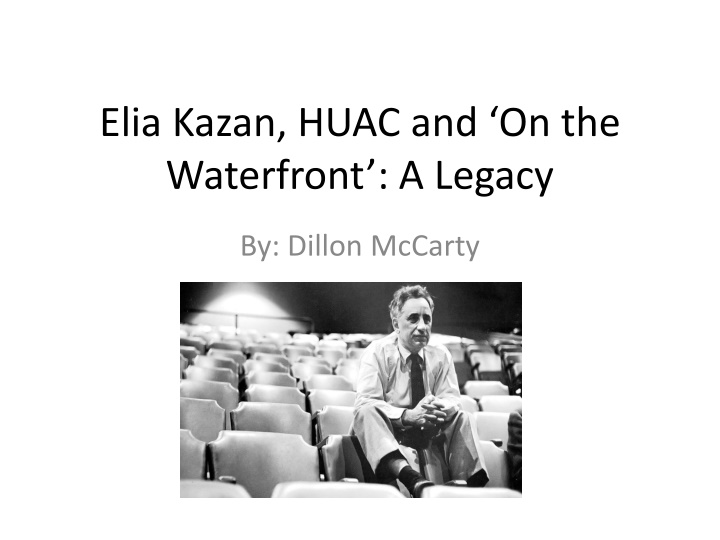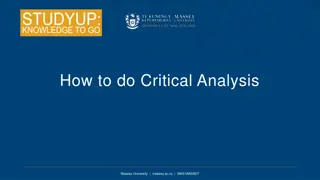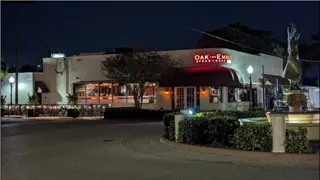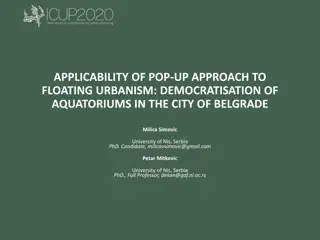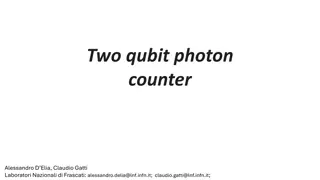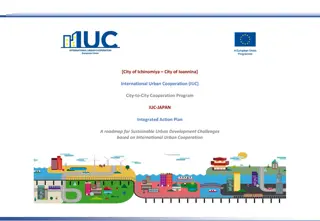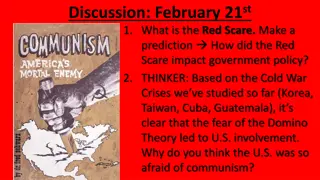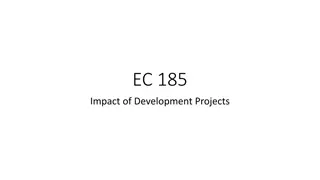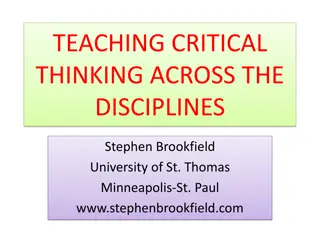Elia Kazan, HUAC, and On the Waterfront: A Critical Analysis
This analysis delves into the allegorical elements of the film "On the Waterfront" in relation to Elia Kazan's involvement with HUAC. It explores the ideological shifts from the 1930s to the 1950s, the comparison of Kazan to the protagonist Terry Malloy, the portrayal of HUAC as a morally justified entity, the depiction of Communists as threats, and the role of Father Barry in promoting Cold War political realism.
Download Presentation

Please find below an Image/Link to download the presentation.
The content on the website is provided AS IS for your information and personal use only. It may not be sold, licensed, or shared on other websites without obtaining consent from the author.If you encounter any issues during the download, it is possible that the publisher has removed the file from their server.
You are allowed to download the files provided on this website for personal or commercial use, subject to the condition that they are used lawfully. All files are the property of their respective owners.
The content on the website is provided AS IS for your information and personal use only. It may not be sold, licensed, or shared on other websites without obtaining consent from the author.
E N D
Presentation Transcript
Elia Kazan, HUAC and On the Waterfront : A Legacy By: Dillon McCarty
Ideology Shift from 1930s to 1950s 1930 s ideology dealt with political idealism, which consisted of a positive and truly Christian-like worldview. 1950 s ideology dealt with political realism, which had a darker outlook that looked at the world in terms of agony and conflict.
Thesis My thesis is that On the Waterfront is an allegory for Kazan s rhetorical situation, and the film makes Kazan and HUAC seem more sympathetic through metaphors and analogies, while also normalizing political realism.
Kazan-Malloy Comparison Terry Malloy is meant to make Elia Kazan look like a truly formed figure of heroism who showcases true ideals of Democracy and justice.
HUAC-Waterfront Crime Commission The WCC is meant to make HUAC look like a morally justified organization that helps the innocent, and hunts down the guilty menaces of society.
Communists and the Mob The Mob is inherently evil in the film. Thus, the mob is meant to suggest that every single Communist (during the HUAC age) was a true threat to Democracy.
Moral Order Through Father Barry Father Barry gives Kazan the unique opportunity to serve as a narrator. In this case, many quotes from Barry deal with Cold War political realism and improving HUAC s cause.
Conclusion Today, Kazan has a split legacy. The positive side of his legacy stems from his personal and realistic additions to storytelling, which ties into political realism.
